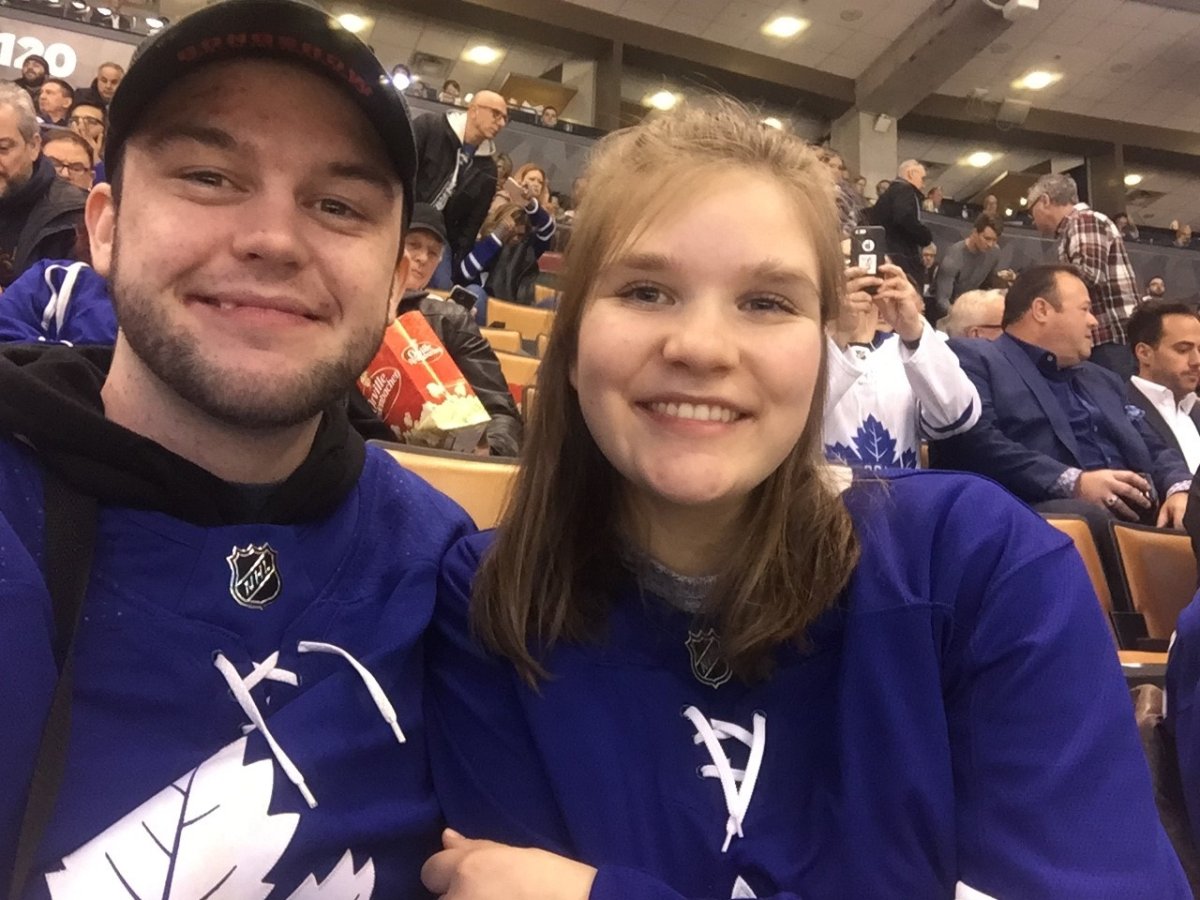Every three months, Dylan Fournier is left wondering if he’ll be cut off from the cancer treatment he needs to survive.

Despite being approved by Health Canada, Keytruda, which Fornier, 21, takes every three weeks through immunotherapy to manage Stage 4 colon cancer, is not covered by the Ontario Health Insurance Plan (OHIP).
For now, the Access Cancer Therapies or (ACT) Now Fund — a charity fund through the London Health Sciences Centre — covers Fournier’s treatment, costing $8,800 every three weeks. His doctor has to re-apply for the funding to cover his medication four times a year. If there’s someone who needs it more, Fournier could be cut off.
“It’s scary not knowing if three months down the road that I may not get covered and then I could do a whole 180 spin and be right back to where I was. I could be back in severe pain,” says Fournier.
The St. Marys resident was diagnosed with a rare form of colon cancer called microsatellite instability-high (MSI-H) in 2017.
After several surgeries, one of which involved removing his large intestine, Fournier underwent chemotherapy to make sure the cancer was all gone.
Unfortunately, the cancer had spread to other parts of his body, progressing to Stage 4.
His oncologist at the time said he’d only live to age 25.
Not wanting to accept the grim prognosis, Fournier found Dr. Stephen Welch, a medical oncologist in the London regional cancer program at LHSC.
Welch prescribed immunotherapy with the drug Keytruda, which is designed to help build up Fournier’s immune system to fight off the cancer.
“It’s a way better quality of life. I basically feel like I am 100 per cent me, but it’s just the fact I still obviously have (cancer) inside of me,” says Fournier.
Fournier’s girlfriend says the difference the treatment has made has been stark.

“Before Dylan started the treatment, he was down to 116 pounds,” says Marissa Power. “He was not eating … not sleeping … not moving. He had severe back pain (and) was in terrible condition. If someone saw him on the street, you would think he was on his death bed.”
Power and Fournier started dating six months before he was diagnosed. Through it all, she has stood by him, acting as not only a partner but also a caretaker and health advocate.
Despite the positive impact the treatment is having, Welch cannot guarantee the funding will continue to be there for Fournier.
“Because the fund is a limited resource, I can’t speak to the status of the fund but theoretically the treatment may have to stop at some point because there is simply no more fund left to spend,” says Welch.
A representative for OHIP explained the process to get a drug covered. In Ontario, cancer drugs are funded by both the Ontario Drug Benefit (ODB) Program and the New Drug Funding Program (NDFP). However, it’s up to Merck Canada, the company that created Keytruda, to submit for funding review under the NDFP for the treatment of colon cancer.
Merck Canada has not done this.
Keytruda is not a new drug. The NDFP funds it for treating various cancers, including skin, lung, bladder and urinary tract cancer that has spread or cannot be removed by surgery.
It is also used to treat certain patients with Hodgkin lymphoma and a specific type of B-cell lymphoma.
When asked why the company had not applied for NDFP coverage for the kind of cancer Fournier has, a representative with Merck Canada said advanced MSI-H colorectal cancer is found in only a small number of Canadians with colon cancer and the path forward for public reimbursement is challenging and uncertain.
“Given that Merck Canada currently only has limited data available for this specific indication, we have decided to wait to file for reimbursement until we have stronger data and are better able to meet the requirements for reimbursement,” the company said in a statement.
That doesn’t give Welch confidence help is coming anytime soon.

“The strongest evidence for benefit for any drug is in a randomized controlled trial, but because (of Fournier’s) circumstance, this MSI-H cancer does not come around often, it’s next to impossible to do a randomized controlled trial,” says Welch.
“Our feeling in the oncology community is that it’s strong enough in this rare patient population. We are frustrated that there does not seem to be another way for these patients with rare cancer to have access to drugs that could help them.”
Welch has been trying to get the drug company to do the application process since Fournier started as his patient six months ago, even trying to get it covered through a compassionate release by either the province or Merck.
He said both gave him the same response: “not possible at this time.”
Merck Canada confirmed that Welch had reached out to the company but said due to privacy considerations, it cannot discuss individual patient files.
“If a patient had the means to purchase the drug, we would not be talking about this, but for those who don’t, there is no mechanism of appeal for circumstances like Dylan’s,” Dr. Welch said.
“That does not seem right.”
Since starting Keytruda, Fournier says beyond feeling better his tumour has shrunk .6 centimetres, which he says is good.
“After six months on this treatment he has put on 40 pounds, he can work, he can do whatever, and now he is starting to apply for jobs, but if he were not to be approved for this medication, he is going to go right back down to where he started,” Power said.
“It’s scary that they might come to the point where they say no, and he might not get covered, but if the government covered it like normal chemotherapy treatments, there would be no question if he were going to get the drug or not.”








Comments